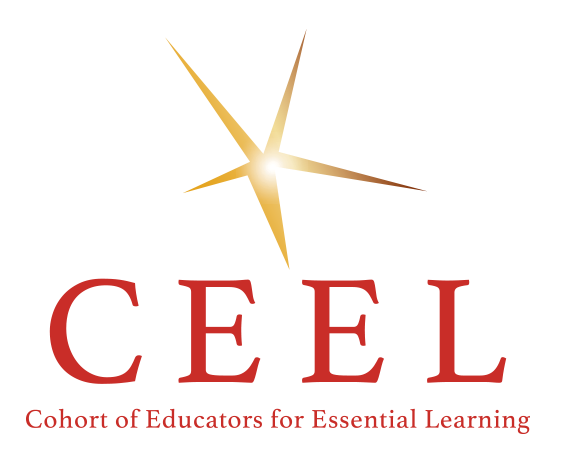I’ve been thinking a lot about talent development lately. I’m back in the classroom after three years as an instructional coach, and I’m loving the job more than ever. Just yesterday, I asked my eleventh-grade American Lit students to do an activity in which they did some individual, personalized analysis and then paired up to share their findings with each other. They burst into a flurry of conversation and discussion that sounded so engaged and on point that I couldn’t help but smile from ear to ear. I love my job, I thought.
But why? What was it, exactly, that I was feeling love for?
It struck me as I was re-reading Liz Wiseman’s Multipliers last night, our first CEEL Book Study book. She talks about how one of the central tenets of being a “multiplier” in organizations is looking for the individual talent in every person you work with and tapping into it for the greater good. She describes how the best leaders in the corporations and organizations she has observed and worked with know how to spot talent and develop it, not by managing and giving orders, but by putting faith in smart people and getting out of their way.
This is what makes me love teaching. I have a classroom full of talented young people, each one with a bright future. Some of them are wonderful artists and think with their hands or imagination. Others are good at synthesizing the big picture and always seem to be able to draw together disparate ideas in the room to find the common link. Others are gifted athletes, competing around the world in soccer, golf, and swimming. Others are deeply empathetic souls, very talented at being a kind, understanding friend. And some are born politicians and activists, devoted to the principles of democracy and engaging in spirited debate about the meaning of it in the current political climate.
This is what a love about my job: I have a microcosm of the world right here in my classroom every day, a wealth of talent just waiting to be tapped.
So why, then, do we have this one-size-fits-all education model for kids like these, all over the world? Why do 99.9% of schools around the globe still mass-produce graduates with nearly identical transcripts and academic experiences? Why are we so slow to personalize learning and assessment for students, as if each kid was the same person?
This led me back to some of the original essential questions we pose in our Core Value of Talent Development:
- Why do we expect students to do well in all their subject areas when we ourselves rarely achieve mastery of them all?
- Are we uncomfortable with students developing their innate interests and talents and specializing in them before university? If so, why?
- Are we cultivating and developing talent or just the appearance of it? Are students (or teachers) achieving out of a love for learning and challenge, or to look good?
- How many kinds of talents are welcome and supported by the current curriculum? How many aren’t?
And it isn’t enough just to ask these questions. We need to keep asking them, over and over again, and then act on them instead of wringing our hands over the lack of choice and autonomy students have in today’s schools. We need to take conscious, deliberate steps today to change our schools to be hubs of talent development.
There are already models out there that do this. Sudbury schools have been around for decades, and this video of a school-within-a-school highlights the authentic, meaningful learning that takes place when students are in charge of their own learning. And lots of teachers are experimenting with student-driven, independent learning like Genius Hour, which I found to be an exceptional way to engage students and teach sophisticated planning and research skills.
And while I’m a fan of radical thinking in education, we don’t need to wait for radical change to begin living by the “talent developer’ credo. We can start tomorrow in our classrooms by asking ourselves some specific questions like:
- What ignites this student’s spark? What puts it out?
- How can I adapt this unit or assessment to allow students’ varied interests and talents to be put to effective use?
- What real problem can our class solve?
As my late father, Grant Wiggins, said:“You are either a talent developer or a slot filler. Talent developers believe that their job is to see the innate talent in each student (or teacher) and draw it out, develop it. Slot fillers are merely going through the motions, placing students (or teachers) in slots that they think they belong in, regardless of who they truly are and what their interests and talents are. Remember that, at the end of the day, your only job in education is talent development.”
Think about who in your own life, especially when you were a young person, developed your talent and “multiplied” you. How did they reach you? How did they motivate you? Why do you still remember that person today?
Consider that. And then go out and act.

